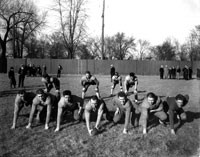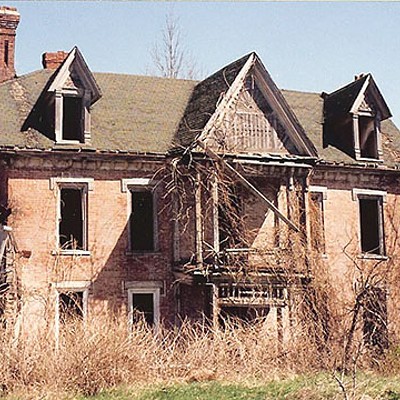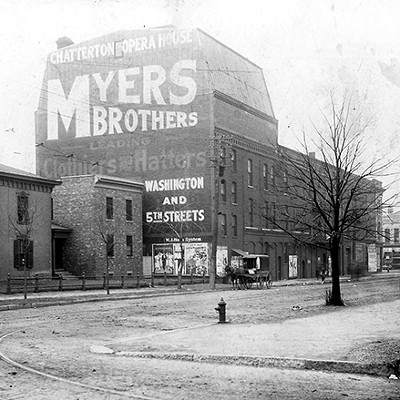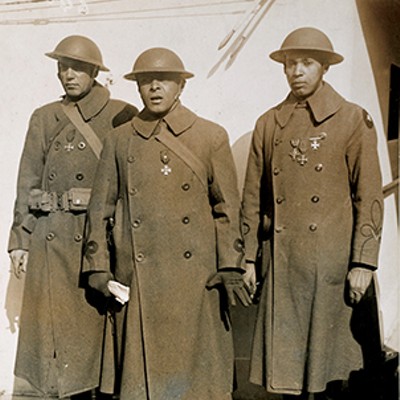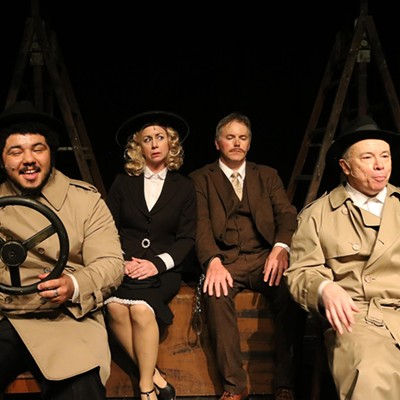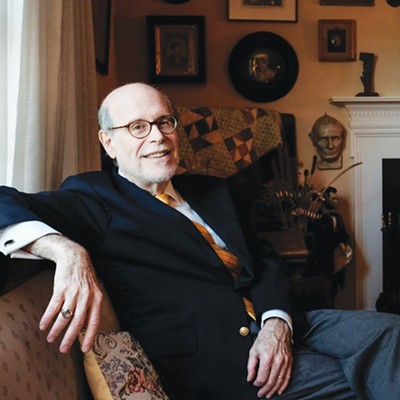James R. "Bud" Fitzpatrick (1895-82), owner and publisher of the Springfield Citizens Tribune, kept a plaque on his office desk that bore this quotation: "There is nothing so powerful as an idea whose time has come." From these words he drew true inspiration, for apparently he felt that he never had a bad idea and acted on all of them. He was smart, tough (at least he talked tough in print), patriotic, opinionated, energetic, hardworking, sports-crazy, sentimental, hometown-proud, irascible, and thoroughly complex. People either loved him or hated him. If nothing else, he was a man of ideas and action, a truly dynamic character and a dyed-in-the-wool Springfield original.
Fitzpatrick started out life at 13th and Jackson streets, the youngest of six children in a poor family. His father was a common laborer. He was educated at old St. Mary's grade school, which stood approximately where the Hilton is now located. But for a brief time at Brown's Business College, that was the end of his formal education. Fitzpatrick took a job at Peter Vredenburgh Lumber Co. when his brother didn't show up for work one day and the boss came seeking him. Their mother sent young Bud in his stead, and that was the beginning of his life in the lumber business. Fitzgerald's daughter, Springfield resident Betsy Burton, says that her father later parlayed his association with Vredenburgh into a loan from a Michigan banker who apparently thought his ties with the company were perhaps a little stronger than they actually were. Fitzpatrick did precious little to disabuse him of the notion, and the loan was secured. That was the beginning of the Fitzpatrick Lumber Co., one of Fitzpatrick's many business ventures.
Burton says that her father taught her well the value of such circumspection. When they would go to events together, he would give her a press pass to carry. He always carried one.
"He loved that press pass. He'd say, 'Don't ask anybody anything. Just say 'Press!' and walk on through!"
It was just that sort of brashness, or bravado, or blarney that those who disliked him interpreted as attitude. Initially Fitzpatrick was a silent partner in the Citizens Tribune (which existed from 1936 until 1956), but he later became sole owner and publisher. He took to the job like a hound to the chase and found that through his weekly newspaper he could nip at the heels (and occasionally sink his teeth into the haunches) of those in political office and anyone else who was on his "agenda." Given a public forum for his thoughts, opinions, and occasional diatribes, he "got the ink in his blood," and thenceforward his words flowed in a mighty profusion. He proudly touted the CT as "Springfield's Only Home-Founded, Home-Owned, Independent Newspaper," and it bore his unmistakable imprimatur for the rest of its days.
During World War II, vice in Springfield was open and rampant, and many activities, such as gambling and prostitution, were merely winked at by those in positions to do something about it. That rankled Fitzgerald, and he crusaded against it. At that time, the Black Cat Club, near Seventh and Madison streets, was allegedly a bordello; by way of exposé, the Tribune ran the front-page banner headline "BLACK CAT HAS WHITE KITTENS." That sort of sensational style and pointed attack was what lent the paper its mien of controversy and caused many to label it a scandal sheet. Fitzpatrick couldn't have cared less. He plowed ahead, unconcerned about who or what stood in his way, and tackled everything from sidewalks and streetlights to curfew and restaurant sanitation.
"He was a feisty little Irishman who could fight off a pack of tigers," says Burton. "He loved Springfield and walked everywhere he went. He knew everybody in town."
Pete Rooney of Chatham remembers his days at the C-T working for Fitzpatrick. He says that he spent countless hours at City Hall digging up informational ammo for Fitz to hurl at his favorite target, Commissioner John Hunter. Rooney says that Fitz also kept in his crosshairs the Copley Press, their "California interests," and the Illinois State Journal. Indeed, Fitzpatrick decried "the Copley policy of rate-cutting and throat-slashing" as a means of crippling the competition. But he bent over backward to help one morning in November 1953, when the Journal press broke down and that paper's staff needed to print the evening Register at his plant.
Alby Plain of Springfield knew Fitz from his schoolboy athletic days. He says, "I liked him. He was always nice to me. But plenty of people didn't, mainly because his paper agitated the hell out of them.
"Kinda like your paper," Plain says, laughing.

